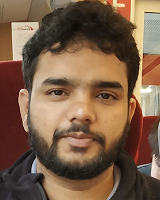
Track 9. Technology-Enhanced Learning of Disciplinary Practices (TELeaD)
Track Program Chairs
Indian Institute of Technology Bombay, India
Indian Institute of Technology Bombay, India
Universidad del Norte, Colombia
Track description and topics of interest
Learning in any discipline, be it science, technology, engineering or mathematics, requires conceptual understanding of relevant content knowledge and learning the disciplinary practices. Disciplinary practices here encompass the processes, skills and knowledge used by professionals such as scientists, engineers and designers to do work and achieve their goals. Thus these practices represent what students are expected to do. Such practices include but are not limited to scientific inquiry, modelling, problem formulation and solving, data analysis, estimation, decision making, design thinking, computational thinking, troubleshooting and so on. While the precise nature and definition of disciplinary-practices may vary across contexts or domains, the development of disciplinary practices has been shown to be crucial for students’ success in the 21st-century workplace. We view the context or domain as a vehicle for the learning of various disciplinary practices and technology as a means of scaffolding and enhancing this learning experience.
This track aims to provide a platform for researchers and educators to present their research on how technology can be used to develop and assess learners’ disciplinary practices. We welcome research on a variety of topics related to the design, development and evaluation of technology-enhanced learning of disciplinary practices. Topics include but are not limited to:
- Learning environments for development of disciplinary practices
- Techniques for integration of ICT to promote disciplinary practices
- Systems / tools aimed at explicitly developing disciplinary practices
- Pedagogical approaches and teaching-learning strategies for developing disciplinary practices
- Curriculum design for the development of disciplinary practices
- Assessment of disciplinary practices – techniques, tools and innovative approaches using technology
- Methodological issues and innovative methods related to research in technology-enhanced learning of disciplinary practices
- Curriculum design for the development of disciplinary practices
- Models, theories and frameworks underpinning technology-enhanced learning of disciplinary practices
- Transfer of disciplinary practices across domains and situations; techniques for fostering transfer; methods of assessing transfer of disciplinary practices
A paper submitted to this track is expected to contain at least two of the following:
- Design – This could be the description of a prototype system, or innovative curricular material, or model, for development of a disciplinary-practices.
- Deployment – This could be a pilot or a large-scale deployment of system/material, along with some evidence of effectiveness.
- Evaluation – This should be a formal educational research study, having strong empirical basis, drawing on relevant research methods.
Track Program Committee
| Chandan DASGUPTA, Indian Institute of Technology Bombay, India |
| Shitanshu MISHRA, Indian Institute of Technology Bombay, India |
| Camilo VIEIRA, Universidad del Norte, Colombia |
| Jenny Patricia ACEVEDO-RINCÓN, Universidad del Norte, Colombia |
| Gökhan AKÇAPINAR, Hacettepe University, Turkey, Turkey |
| Kavya ALSE, Indian Institute of Technology Bombay, India |
| Rafael AMADOR-RODRÍGUEZ, Universidad del Norte, Colombia |
| Gargi BANERJEE, Indian Institute of Technology Bombay, India |
| Francesco CAFARO, Indiana University-Purdue University Indianapolis, USA |
| Sanjay CHANDRASEKHARAN, Homi Bhabha Centre for Science Education, India |
| Mei-Rong Alice CHEN, National Taiwan University of Science and Technology, Taiwan |
| Anurag DEEP, Indian Institute of Technology Bombay, India |
| Alejandro ESPINAL, Universidad del Norte, Colombia |
| Ricardo GOMEZ, Universidad de Antioquia, Colombia |
| Nicole HUTCHINS, Vanderbilt University, USA |
| Kapil KADAM, Indian Institute of Technology Bombay, India |
| Durgaprasad KARNAM, Tata Institute of Fundamental Research, India |
| Aditi KOTHIYAL, Swiss Federal Institute of Technology, Switzerland |
| Rwitajit MAJUMDAR, Kyoto University, Japan |
| Madhuri MAVINKURVE, Indian Institute of Technology Powai, India |
| Anabil MUNSHI, Vanderbilt University, USA |
| Sahana MURTHY, Indian Institute of Technology Bombay, India |
| Juan David ORTEGA-ALVAREZ, Purdue University, USA |
| Prajakt PANDE, Roskilde University, Denmark |
| Mrinal PATWARDHAN, Indian Institute of Technology Bombay, India |
| Prajish PRASAD, Indian Institute of Technology Bombay, India |
| Vijay RAISINGHANI, Mukesh Patel School of Technology Management & Engineering, Mumbai, India |
| Ramkumar RAJENDRAN, Indian Institute of Technology Bombay, India |
| Veenita SHAH, Indian Institute of Technology Bombay, India |
| Kshitij SHARMA, Norwegian University of Science and Technology, Norway |
| Lakshmi T G, Indian Institute of Technology Bombay, India |
| Aneesh P. TARUN, Ryerson University, Canada |
| Yoselyn WALSH, Tecnológico de Costa Rica, Costa Rica |
| Jayakrishnan WARRIEM, Indian Institute of Technology Madras, India |
| Ying YING SEAH, Purdue University, USA |



